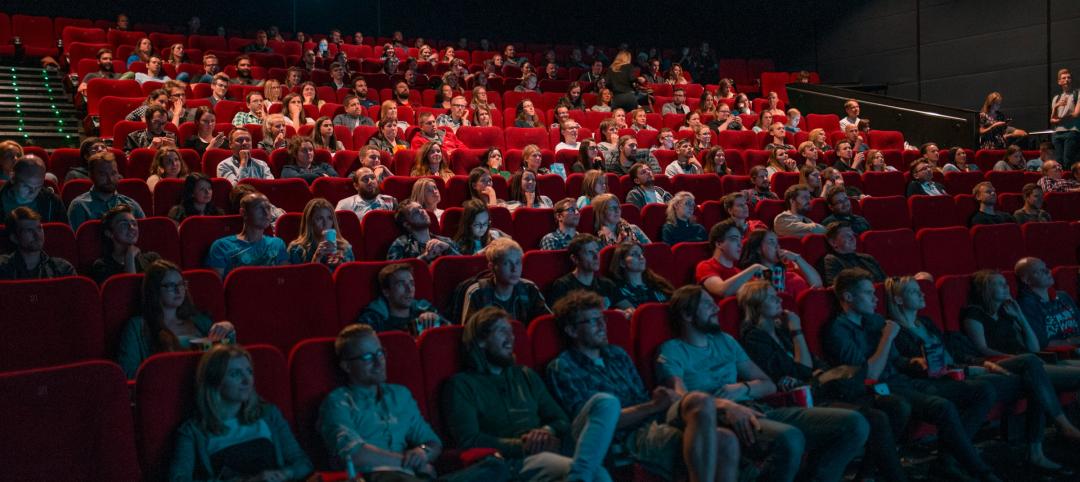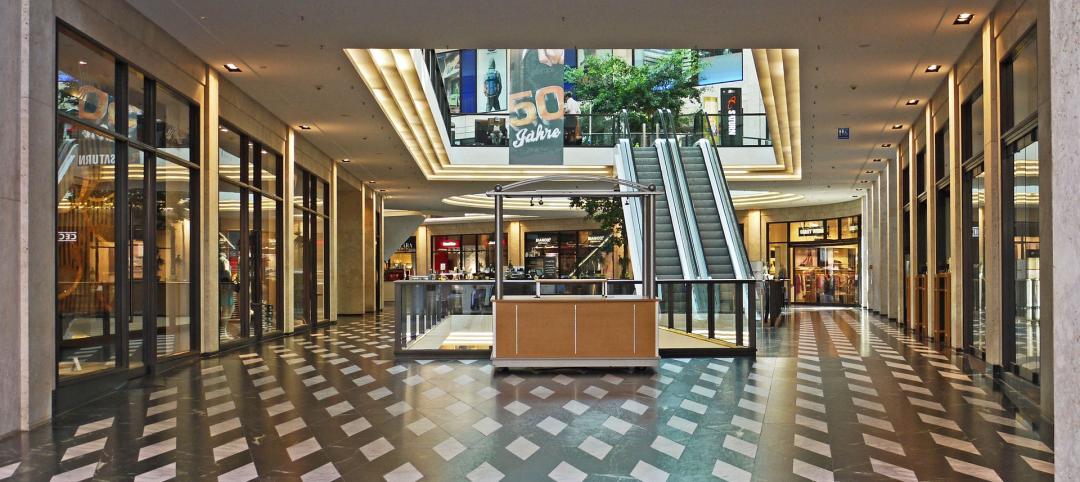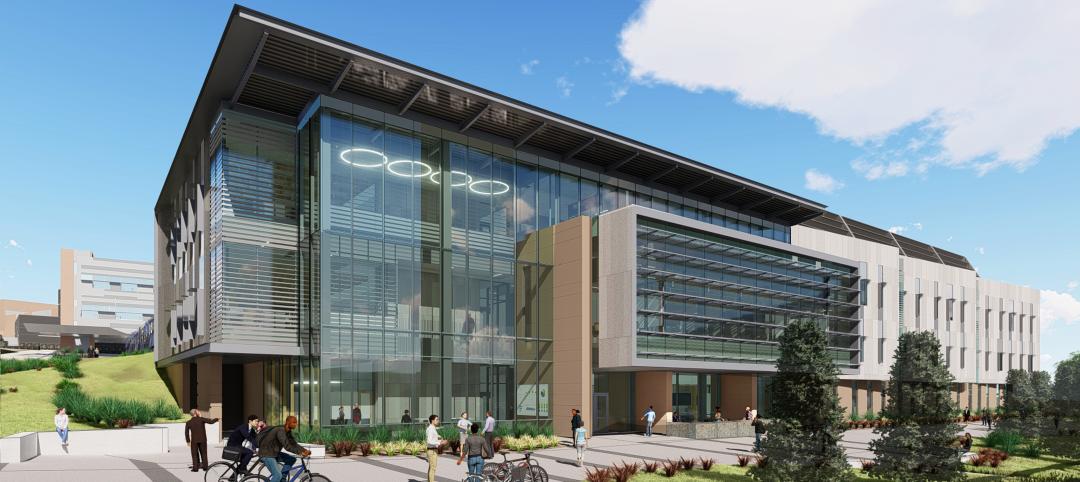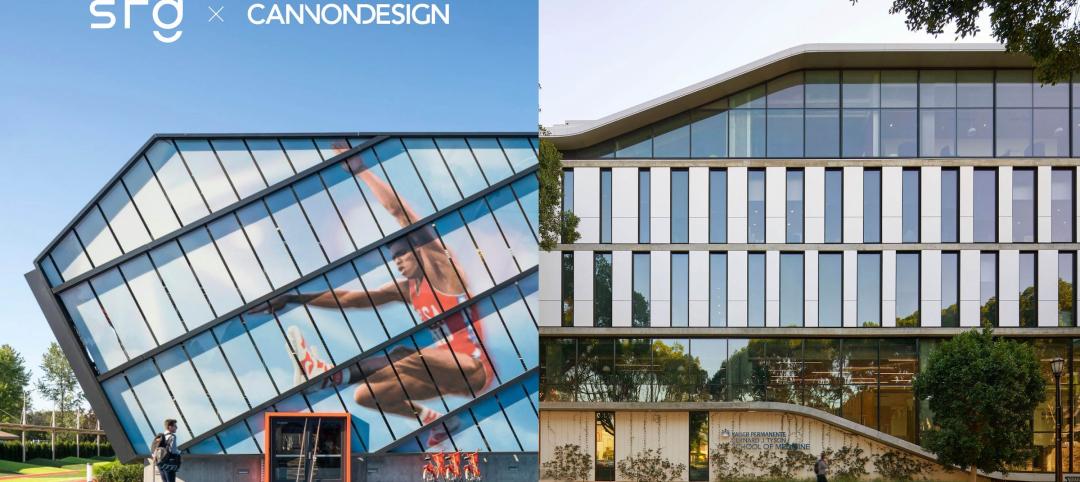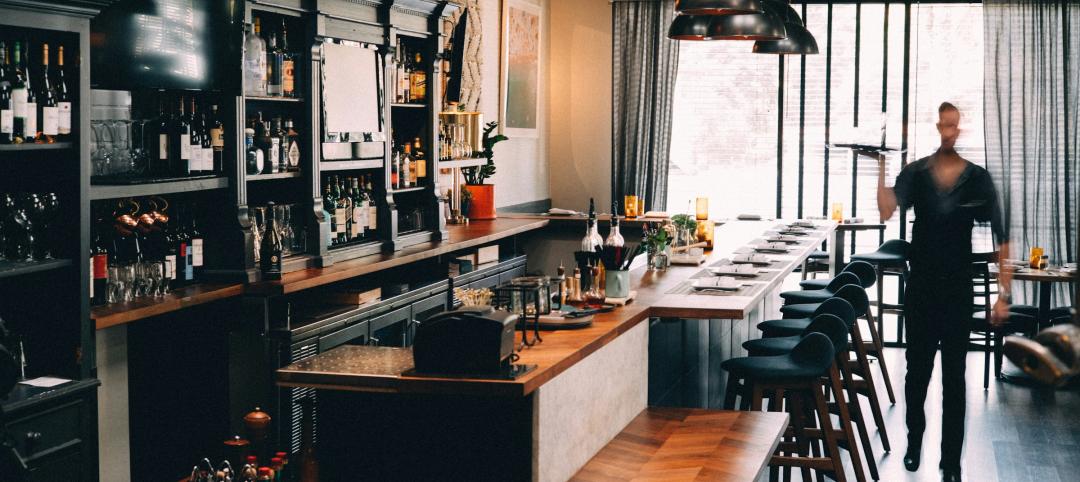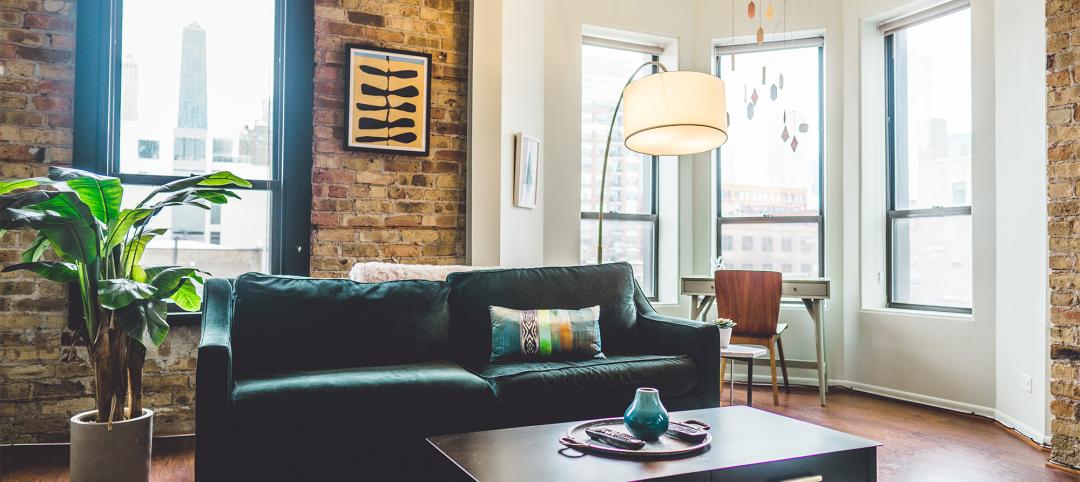Dissatisfied with the one-dimensional nature of defining energy efficiency as it relates to commercial buildings, international engineering firm Buro Happold developed a metric that links energy use to economic performance. The Building Economic Energy Coefficient (BEEC) could help many commercial building owners whose properties use a lot of energy (input), but add economic value to their cities and regions (output). This metric can also be a game changer that influences how local governments create policy to monitor the energy use of buildings.
(Download Buro Happold's white paper on the subject.)
Most systems of measurement deem a building efficient or inefficient based solely on how much energy it consumes. By contrast, BEEC measures a building’s energy use against economic performance indicators to give a more complete picture of a building’s productivity -- hence its overall efficiency. For example, a building might use less energy, but its tenants do not contribute as much to the regional economy. By this definition, another building that uses more energy might have an exponentially greater economic performance, making it more efficient.
When observed from this more comprehensive vantage point, some buildings that were previously thought of as energy hogs are revealed to be using energy more efficiently than many low-energy buildings. Buro Happold used proprietary research from CoStar Group to determine economic performance of commercial buildings in New York.
“Energy efficiency is framed in a very black-and-white way – either a building has low energy intensity or it is considered wasteful. With this research, we can now see whether or not commercial buildings are putting energy to good use. It allows us a much more nuanced and complete picture of what’s really going on with energy use,” said Steven Baumgartner, PE, CEM, HBDP, LEED AP, associate at Buro Happold, who led the research team, along with Jim Coleman and Amelia Aboff of Happold Consulting, Buro Happold’s strategic consulting arm.
City officials, building owners, and members of the AEC industry measure a building’s energy use on a per square foot, per year basis. This is known as its Energy Use Intensity (EUI). EUI is a very useful metric in determining a building’s performance but it only tells half of the story.
“Buro Happold has been a pioneer in sustainability for decades, and now we are intensively involved in the challenges of the 21st century,” said Craig Schwitter, PE, BSCE, MSCE, principal. “We are a multidisciplinary firm that brings a comprehensive approach to problems at multiple scales – from the individual building to the region. This groundbreaking research will have a major impact on the way that energy use is discussed and regulated as we meet the ongoing challenges of an increasingly complex world.”
BEEC data is currently limited to New York City commercial buildings. With more funding, Buro Happold hopes to expand the scope of the research to include more cities, and with greater detail. “This is a huge first step toward redefining energy efficiency,” added Baumgartner, “and we’re excited to take this research to the next level.”
Related Stories
Giants 400 | Feb 5, 2024
Top 30 Entertainment Center, Cineplex, and Theme Park Architecture Firms for 2023
Gensler, JLL, Nelson Worldwide, AO, and Stantec top BD+C's ranking of the nation's largest entertainment center, cineplex, and theme park architecture and architecture engineering (AE) firms for 2023, as reported in the 2023 Giants 400 Report.
Urban Planning | Feb 5, 2024
Lessons learned from 70 years of building cities
As Sasaki looks back on 70 years of practice, we’re also looking to the future of cities. While we can’t predict what will be, we do know the needs of cities are as diverse as their scale, climate, economy, governance, and culture.
Giants 400 | Feb 5, 2024
Top 90 Shopping Mall, Big Box Store, and Strip Center Architecture Firms for 2023
Gensler, Arcadis North America, Core States Group, WD Partners, and MBH Architects top BD+C's ranking of the nation's largest shopping mall, big box store, and strip center architecture and architecture engineering (AE) firms for 2023, as reported in the 2023 Giants 400 Report.
Laboratories | Feb 5, 2024
DOE selects design-build team for laboratory focused on clean energy innovation
JE Dunn Construction and SmithGroup will construct the 127,000-sf Energy Materials and Processing at Scale (EMAPS) clean energy laboratory in Colorado to create a direct path from lab-scale innovations to pilot-scale production.
Architects | Feb 2, 2024
SRG Partnership joins CannonDesign to form 1,300-person design giant across 18 offices
SRG Partnership, a dynamic architecture, interiors and planning firm with studios in Portland, Oregon, and Seattle, Washington, has joined CannonDesign. This merger represents not only a fusion of businesses but a powerhouse union of two firms committed to making a profound difference through design.
Giants 400 | Feb 1, 2024
Top 90 Restaurant Architecture Firms for 2023
Chipman Design Architecture, WD Partners, Greenberg Farrow, GPD Group, and Core States Group top BD+C's ranking of the nation's largest restaurant architecture and architecture engineering (AE) firms for 2023, as reported in the 2023 Giants 400 Report.
Standards | Feb 1, 2024
Prioritizing water quality with the WELL Building Standard
In this edition of Building WELLness, DC WELL Accredited Professionals Hannah Arthur and Alex Kircher highlight an important item of the WELL Building Standard: water.
Luxury Residential | Feb 1, 2024
Luxury 16-story condominium building opens in Chicago
The Chicago office of architecture firm Lamar Johnson Collaborative (LJC) yesterday announced the completion of Embry, a 58-unit luxury condominium building at 21 N. May St. in Chicago’s West Loop.
Industry Research | Jan 31, 2024
ASID identifies 11 design trends coming in 2024
The Trends Outlook Report by the American Society of Interior Designers (ASID) is the first of a three-part outlook series on interior design. This design trends report demonstrates the importance of connection and authenticity.
Museums | Jan 30, 2024
Meier Partners' South Korean museum seeks to create a harmonious relationship between art and nature
For the design of the newly completed Sorol Art Museum in Gangneung, South Korea, Meier Partners drew from Korean Confucianism to achieve a simplicity of form, material, and composition and a harmonious relationship with nature. The museum is scheduled to open on February 14. It is the firm’s first completed project since restructuring as Meier Partners.



